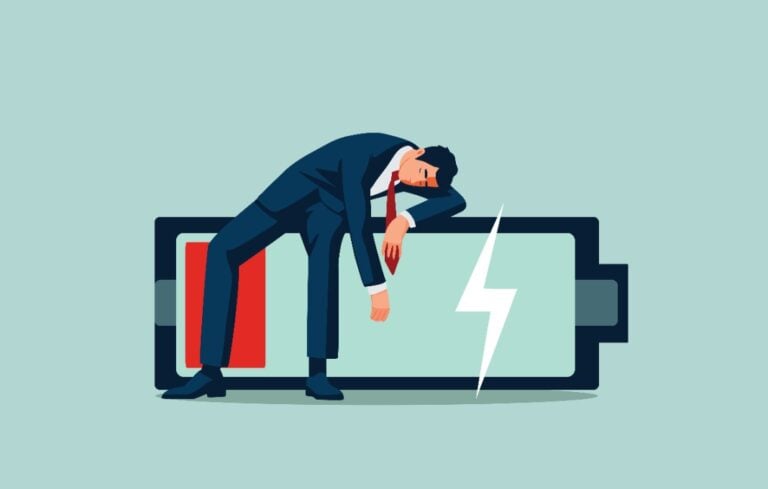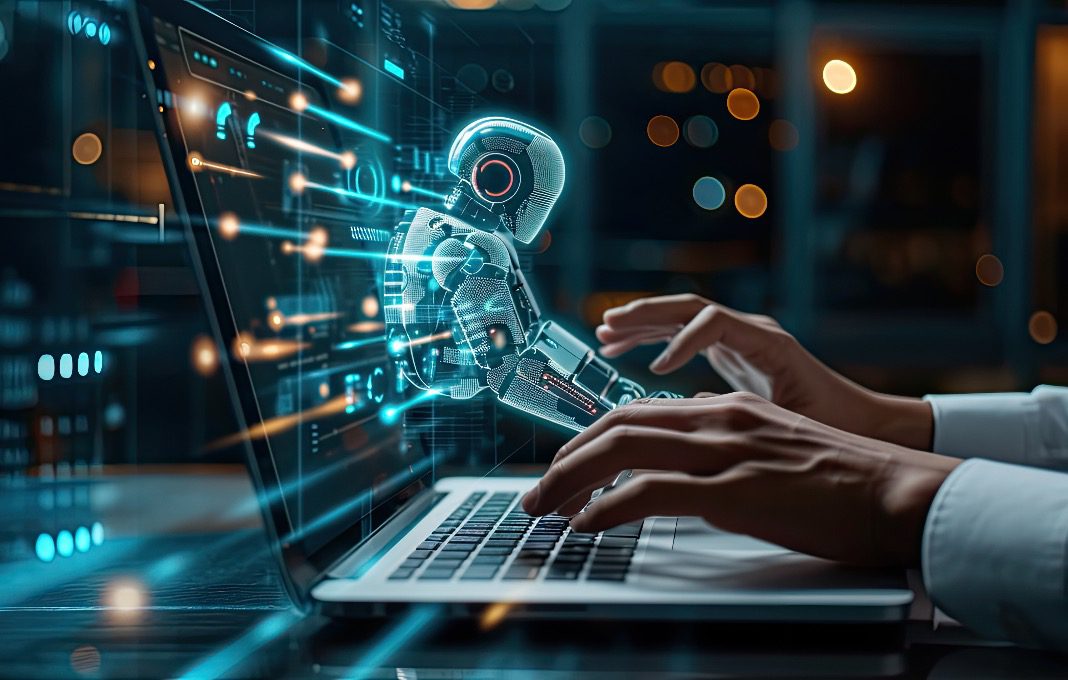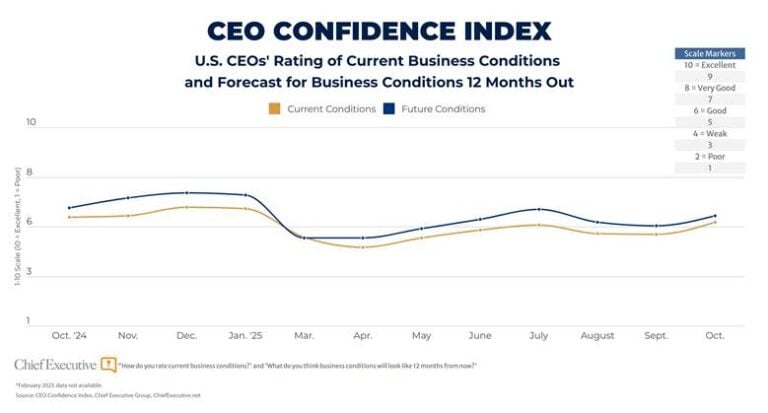


In the rapidly evolving landscape of modern business, a new paradigm is emerging—one where artificial intelligence (AI) isn’t just a tool, but a fundamental pillar of corporate strategy. As we stand on the brink of what many are calling the Fourth Industrial Revolution, companies face a stark choice: evolve or become obsolete. This isn’t hyperbole; it’s the new reality of our AI-driven world.
Consider this sobering statistic: approximately half of the current S&P 500 companies are projected to be replaced within the next decade. The culprit? The breakneck pace of technological innovation and disruption. In this new era, longevity is no longer a guarantee of future success. We’re witnessing the rise of digital natives—companies like Facebook (founded 2004), Google (1998), Netflix (1997), and Amazon (1994)—that have rapidly ascended to dominance by leveraging AI and advanced technology as their core foundations.
But what about established companies? Is there a path for traditional businesses to not just survive, but thrive in this new landscape? The answer is a resounding yes, but it requires a fundamental shift in approach. Enter the Irreplaceable framework—a comprehensive strategy designed to help businesses of all ages navigate the AI revolution.
Decoding Irreplaceable: The New Business Imperative
The Irreplaceable framework isn’t just another business buzzword. It’s a holistic approach to business transformation that recognizes the interdependence of technology, human capabilities, and adaptability. At its core, the framework posits that to become truly irreplaceable in the market, a company must excel in three key areas:
1. AI-Ready: This goes beyond merely implementing AI systems. It’s about fostering a culture that seamlessly integrates AI, enhancing productivity and driving innovation, all while maintaining rigorous ethical standards.
2. Human-Ready: As AI capabilities surge, paradoxically, the human element becomes more crucial than ever. This pillar emphasizes cultivating skills that AI can’t replicate—innovation, ethical judgment, emotional intelligence, and what we term “Humics.”
3. Change-Ready: In a world where change is the only constant, agility and adaptability become the bedrock of enduring success. This involves developing a corporate culture that not only embraces change but thrives on it, fostering continuous learning and swift adaptation to evolving paradigms.
Let’s delve deeper into each of these pillars and explore how they can be implemented in practice.
Becoming AI-ready involves three key steps:
1. Cultivating an AI mindset: This means fostering a culture where AI is seen not as a threat, but as a powerful tool for augmenting human capabilities. It involves educating employees at all levels about AI’s potential and encouraging them to think creatively about how AI can be applied to solve business problems.
2. Developing AI talent: As the demand for AI skills skyrockets, companies must prioritize building and maintaining a strong pool of AI talent. This could involve upskilling existing employees, partnering with educational institutions, or implementing innovative recruitment strategies to attract top AI talent.
3. Leveraging the AI virtuous cycle: This concept involves using AI to improve products or services, which in turn attracts more customers, generating more data, which further improves the AI, creating a self-reinforcing cycle of improvement and growth.
However, becoming AI-ready isn’t just about maximizing AI’s potential—it’s also about mitigating its risks. This brings us to two crucial aspects of AI readiness:
4. Ensuring AI safety: As AI systems become more complex and integral to business operations, ensuring their safety becomes paramount. This involves developing robust cybersecurity measures and privacy protocols to protect against AI-related threats and misuse.
5. Implementing responsible AI: This means developing AI systems that are explainable, fair, and respectful of individual privacy. It’s about ensuring that your AI is not just powerful, but also ethical and aligned with societal values.
In an age where AI can perform increasingly complex tasks, the uniquely human skills—what we call “Humics”—become more valuable than ever. Being Human-Ready involves:
1. Fostering genuine creativity: While AI can generate ideas and automate certain creative tasks, human creativity—with its capacity for emotional resonance, cultural understanding, and ethical consideration—remains irreplaceable.
2. Encouraging critical thinking: AI excels at data analysis and pattern recognition, but human critical thinking is essential for interpreting this information within broader contexts, making nuanced judgments, and navigating complex ethical considerations.
3. Cultivating social authenticity: While AI can handle basic interactions and data analysis, humans are crucial for activities requiring deep interpersonal skills, emotional intelligence, and cultural adaptability.
The key to being Human-Ready is not to compete with AI, but to complement it. It’s about creating a synergy where AI and humans each play to their strengths, resulting in outcomes that neither could achieve alone.
In a world where change is accelerating, being Change-Ready is not just an advantage—it’s a necessity for survival. This involves:
1. Building resilience: This means developing the capacity to maintain and restore business performance in the face of obstacles, changes, or pressures. It involves creating robust systems and processes that can withstand shocks and disruptions.
2. Cultivating adaptability: Beyond just weathering changes, truly Change-Ready organizations can pivot quickly in response to new information, market shifts, or unforeseen events. This requires a culture of continuous learning and a willingness to challenge established ways of doing things.
Being Change-Ready isn’t about predicting the future—it’s about creating an organization that can thrive no matter what the future brings.
The Irreplaceable Framework in Action: A Case Study
To understand how the Irreplaceable framework can transform a business, let’s look at a real-world example: John Deere, a company founded in 1837 that has successfully reinvented itself for the AI age.
Recognizing the pressing need for sustainable farming solutions in an era of diminishing arable land and growing populations, John Deere embarked on a comprehensive AI transformation. Their approach beautifully illustrates the Irreplaceable framework in action:
• AI-Ready: John Deere developed smart tractors and harvesters equipped with AI, capable of analyzing real-time data on soil conditions, crop health, and weather patterns to optimize farming operations. They also acquired Blue River Technology, augmenting their AI capabilities with smart spraying technology that could reduce chemical usage by up to 90%.
• Human-Ready: Crucially, these AI-powered machines were designed to be partners, not replacements for farmers. The human farmer remains the ultimate decision-maker, blending traditional agricultural knowledge with data-driven insights. This approach enhanced farmers’ expertise and increased the value of their role, rather than diminishing it.
• Change-Ready: John Deere’s transformation wasn’t just about technology—it represented a fundamental shift in how they viewed their business. They moved from seeing themselves as a manufacturer of farming equipment to a provider of intelligent agricultural solutions, demonstrating remarkable adaptability in the face of technological disruption.
The results of this transformation have been remarkable: a 400% increase in stock price since 2016, significant revenue growth, and accolades for ethical business practices. But perhaps more importantly, John Deere’s journey reflects a profound understanding that the future of agriculture—and indeed, of business in general—hinges on a delicate balance between technological advancement and human wisdom.
While every company’s journey to becoming Irreplaceable will be unique, here are some key steps that can guide the process:
• Assess Your Current State: Before you can become Irreplaceable, you need to understand where you stand. Conduct a thorough assessment of your organization’s AI capabilities, human skills, and adaptability.
• Develop an AI Strategy: Based on your assessment, develop a comprehensive strategy for integrating AI into your business operations. This should include plans for data management, AI implementation, and ethical considerations.
• Invest in Human Capital: Alongside your AI investments, develop programs to enhance your employees’ “Humics”—those uniquely human skills that complement AI capabilities.
• Foster a Culture of Innovation and Adaptability: Encourage experimentation, reward calculated risk-taking, and create systems for continuous learning and improvement.
• Implement Ethical Safeguards: As you integrate AI into your operations, ensure you have robust systems in place to monitor for bias, protect privacy, and maintain transparency.
• Continuously Reassess and Adjust: The journey to becoming Irreplaceable is ongoing. Regularly evaluate your progress and be prepared to adjust your strategy as needed.
As we stand on the cusp of a new era in business, the companies that will thrive are those that can harness the power of AI while amplifying uniquely human skills. They will be the ones that use AI to augment human capabilities, not replace them. They will be ethical, adaptive and resilient.
The Irreplaceable framework provides a roadmap for this journey. It’s not just about implementing new technologies—it’s about reimagining your entire business model and organizational culture for the AI age.
The future of business is AI-driven, but it’s still fundamentally human. By becoming AI-Ready, Human-Ready, and Change-Ready, companies can position themselves not just to survive the AI revolution, but to lead it.



0

1:00 - 5:00 pm
Over 70% of Executives Surveyed Agree: Many Strategic Planning Efforts Lack Systematic Approach Tips for Enhancing Your Strategic Planning Process
Executives expressed frustration with their current strategic planning process. Issues include:
Steve Rutan and Denise Harrison have put together an afternoon workshop that will provide the tools you need to address these concerns. They have worked with hundreds of executives to develop a systematic approach that will enable your team to make better decisions during strategic planning. Steve and Denise will walk you through exercises for prioritizing your lists and steps that will reset and reinvigorate your process. This will be a hands-on workshop that will enable you to think about your business as you use the tools that are being presented. If you are ready for a Strategic Planning tune-up, select this workshop in your registration form. The additional fee of $695 will be added to your total.

2:00 - 5:00 pm
Female leaders face the same issues all leaders do, but they often face additional challenges too. In this peer session, we will facilitate a discussion of best practices and how to overcome common barriers to help women leaders be more effective within and outside their organizations.
Limited space available.

10:30 - 5:00 pm
General’s Retreat at Hermitage Golf Course
Sponsored by UBS
General’s Retreat, built in 1986 with architect Gary Roger Baird, has been voted the “Best Golf Course in Nashville” and is a “must play” when visiting the Nashville, Tennessee area. With the beautiful setting along the Cumberland River, golfers of all capabilities will thoroughly enjoy the golf, scenery and hospitality.
The golf outing fee includes transportation to and from the hotel, greens/cart fees, use of practice facilities, and boxed lunch. The bus will leave the hotel at 10:30 am for a noon shotgun start and return to the hotel after the cocktail reception following the completion of the round.